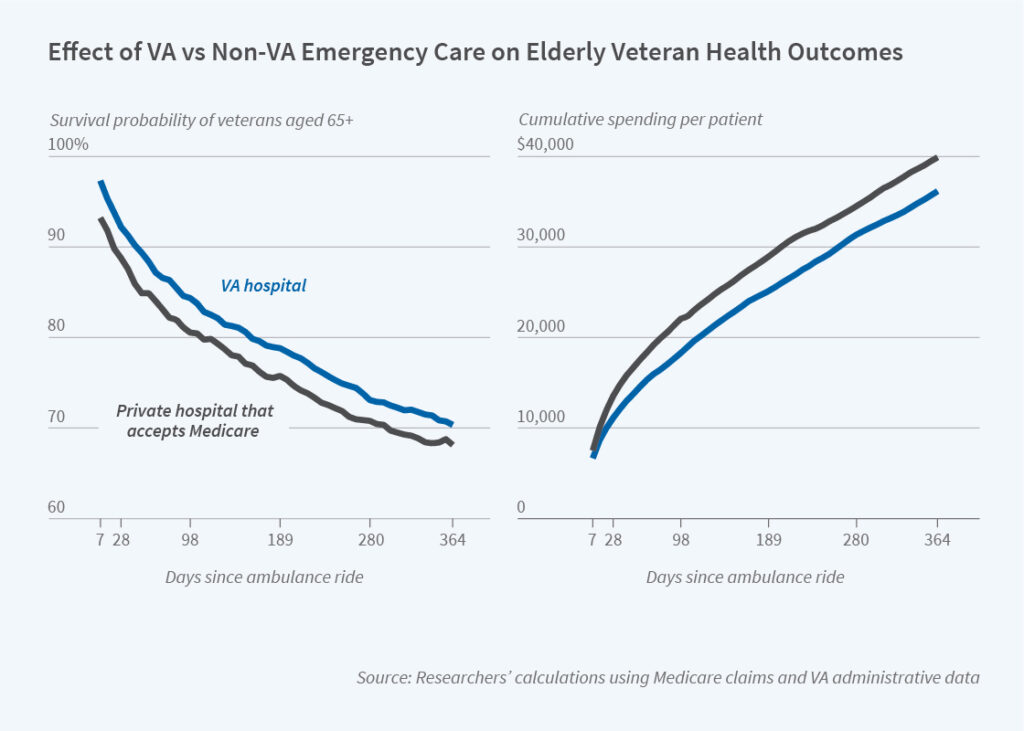How do efficiently is care provided for patients at Veteran Affairs’ hospitals as compared to private hospitals? This is not an easy question to answer as the composition of patients differs between these hospitals. Even among dually-eligible individuals – those with both VA and commercial insurance – individuals treated at VA hospitals are generally more severely ill.
To better answer this question, a recent NBER paper by Chan, Card and Taylor (2022) uses an quasi-experimental design looking at differences in hospital choice that occur due to randomness of ambulance dispatches following a 911 emergency call. The authors use claims data from the VA and Medicare to conduct this analysis. Using this approach, they find that:
Veterans who were induced by the ambulance company to be treated at a VA hospital are 4.5 percent points (46 percent) less likely to die within 28 days of the ambulance ride… the total cost of care is $ 2,598 (21 percent) lower at VA hospitals during the 28 days following the ambulance ride and this cumulative spending differential endures over time… the lower costs at VA hospitals reflect a different overall pattern of care including fewer hospital days, more outpatient care, and more telephone calls.

Note that this study has high internal validity – as the quasi-experimental design appears robust – but the external validity is less clear. Would the VA also have better quality and lower cost for non-urgent care? That would be an interesting research question to investigate in the future.

